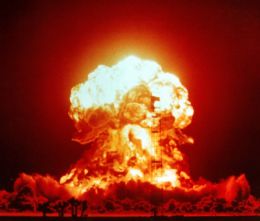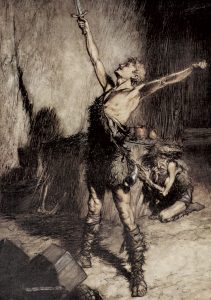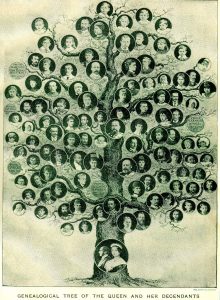Elon Musk insinuates that investing in SpaceX is good because colonizing Mars can be a hedge against something destroying life on Earth. This seems like far-sighted wisdom, but Musk often frames things as a forgone conclusion to induce people to invest in his businesses. (more…)
Tag: the future
-
6,044 words
One of the more common tropes found in Dissident Right discourse concerns the relationship between the Left and “reality.” This discourse articulates a belief held by Right-wingers that the Left lives in denial of reality, and that this leads to deleterious outcomes for peoples of European descent. However, in another sense, Right-wing discourses concerning the Left-wing relationship with reality focuses on how particular personalities common on the Left cause them to relate to present and future realities differently than those on the Right. (more…)
-
2,124 words
Before the American general election, my friends kept asking me who’d be the likely winner, Trump or Biden. My response, which infuriated everyone who got it, was usually some variation of “define winning.”
Do you mean who’ll win the most votes? Do you mean who’ll win the elections, presuming no shenanigans, which was a laughable proposition even before the evidence started pouring in for America’s advanced banana republicanism? (more…)
-

Eli Lotar, Hôpital des Quinze-Vingts, 1928.

Eli Lotar, Hôpital des Quinze-Vingts, 1928.
1,129 words
Editor’s Note: The following is a subchapter from Wilmot Robertson’s book, The Ethnostate. It may provide some encouragement in these trying times. For more on Robertson, see Spencer J. Quinn’s review of The Ethnostate and all posts tagged Wilmot Robertson.
Pessimism is a vital ingredient of tragedy, which is the highest form of drama and the dominant theme in great literature, art, and music. No optimist could possibly have created characters like Oedipus, Lear, and Faust. Still, optimism is a major force for great deeds in the real world. Few will struggle to perform heroic feats unless they feel that “the world,” (more…)
-
2,325 words
Part 4 of 4 (Part 1 here; Part 2 here; Part 3 here)
7. Concluding Reflections
I turn now to some thoughts on how the foregoing treatment of the influence of the past on the present ought to affect our own present, when we finish this essay and return to the real world.
It is a well-known fact that our ancestors acted with awareness of membership in the clan: trying to be worthy of their own ancestors, and not to disgrace them. (more…)
-
4,547 words
Part 2 of 4 (Part 1 here; Part 3 here; Part 4 here)
4. Tradition
Having now discussed the clannic being of the individual purely in philosophical terms, I now turn to a consideration of the treatment of this idea in the Germanic tradition.
The first thing we must note is what can be called the “primacy of the past” in that tradition. (more…)
-
Part 1 of 4 (Part 2 here; Part 3 here; Part 4 here)
1. Introduction
This essay presents an “ontology of the individual.” The theory is new, though it has very old roots. “Ontology” is the branch of philosophy that studies being-as-such, or “being as being,” as Aristotle expressed it.[1] My argument is that the being of an individual person is bound up with that individual’s relation to his family or clan. (more…)





